Unlock the world of vibrant flavors and enormous benefits with this easy guide on making quick pickled carrots without vinegar. Not only are these pickles bursting with taste, but they also come with a host of health benefits thanks to the magic of fermentation.
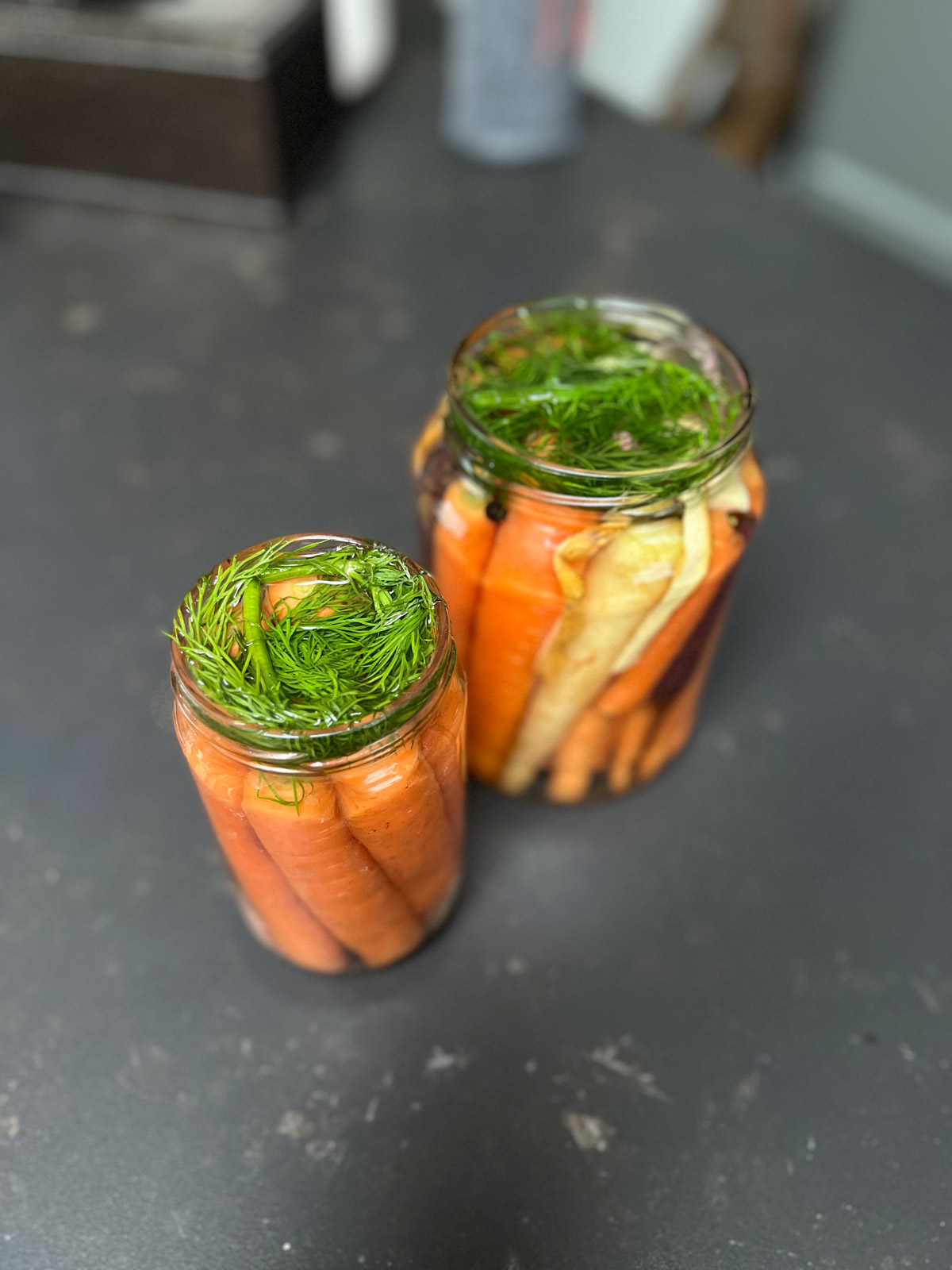
Fermented carrots are essentially an ancient method of pickling, much like dill pickles meaning no vinegar, just lacto-fermented. Pure goodness. I am going to show you how to make them at home, quickly and easily.
I grew up with pickles (lacto-fermented pickles) and I love them. My mum pickles almost anything. She used to pickle a whole cabbage for the cabbage rolls or sarmale, pickle whole watermelons, and most of the time mix them, like green tomatoes, carrots, celeriac, apples, and beets, all these in one barrel.
I remember the excitement when a whole watermelon was brought up from the cellar and often there was nothing left at the end of the meal. We used to enjoy it with a nice pilaf, or a stew like this goulash, mmm, so yummy!
Jump to:
📖 History of pickling
Pickling has been practiced for thousands of years, with evidence of pickled food dating back to ancient civilizations such as Mesopotamia, Egypt, and China. The process of pickling was developed as a means of preserving food for times of scarcity, as well as a way to enhance flavors.
- Ancient Mesopotamia and Egypt: Pickling dates back to around 2400 BCE, when cucumbers were first pickled in the region that is now Iraq. The ancient Egyptians also pickled a variety of foods, including cucumbers, onions, and melons.
- Ancient Greece and Rome: The ancient Greeks and Romans utilized pickling as a preservation method. They pickled a wide range of vegetables, fruits, and even fish. The Roman scholar Pliny the Elder documented pickling techniques in his writings.
- Middle Ages and Renaissance: Pickling continued to be an important food preservation method during the Middle Ages. In Europe, the use of vinegar as a pickling agent became more widespread.
- Age of Exploration: The exploration and colonization of new lands brought new flavors and ingredients to the pickling tradition. For instance, sailors used pickling to preserve food during long sea voyages.
- Industrial Revolution: With advancements in food processing and canning techniques during the 19th century, pickles became more readily available. Mass production and commercialization of pickles made them accessible to a wider population.
- Pickles in Different Cultures: Pickling techniques and flavors vary across different cultures. For example, in Korea, kimchi is a popular fermented pickle made with cabbage, radishes, and spices. In Japan, pickled ginger (gari) is commonly served with sushi. Pickled mango and lime are popular in India, while sauerkraut is a well-known fermented pickle in Germany.
Today, pickles continue to be enjoyed worldwide, with a wide variety of flavors, techniques, and ingredients used in the pickling process.
🥘 Ingredients
Use a clear shot of the ingredients for this recipe, prepped, and labeled if necessary. Add a paragraph of content describing why these ingredients were chosen. Insert the ingredients into the list below, omitting quantities.
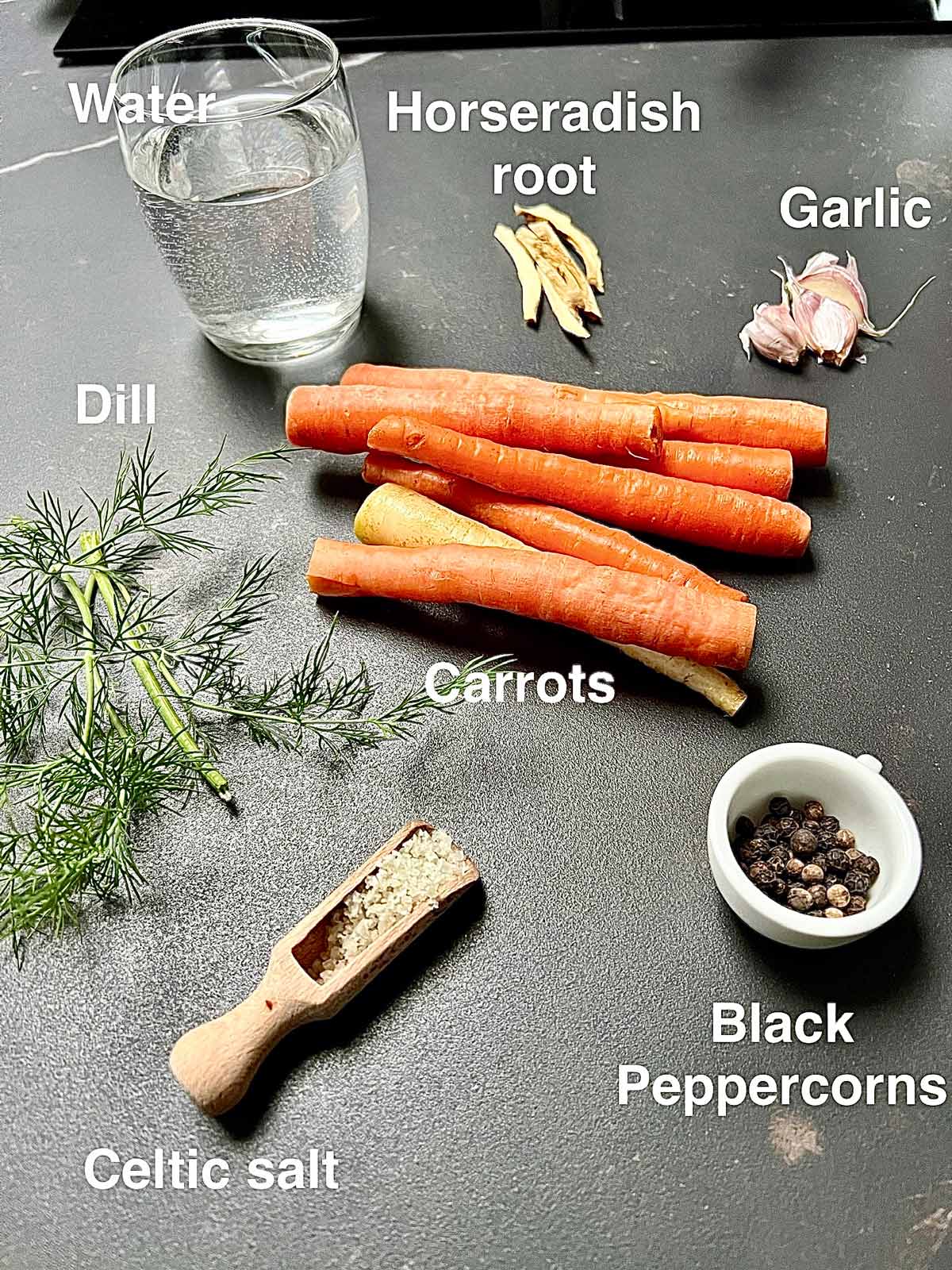
- carrots
- horseradish root
- Celtic salt
- Black peppercorns
- fresh dill
- water
- garlic
See the recipe card below for the exact quantities.
How to pickle carrots
There are only a few steps necessary to make these super quick and easy pickled carrots. Heere are the steps:

Gather all the needed ingredients.

Simply arrange the carrots into the jar(s).

Add the peppercorns and tuck in the horseradish strips.

Add the water salt, and garlic. The content should be submerged.
Hint
- Please make sure you clean the carrots and the jars thoroughly.
- The best water to use for fermented pickles is non-chlorinated water. Chlorine can inhibit the growth of beneficial bacteria and yeast, essential for the fermentation process. I recommend using filtered water or allowing tap water to sit out for at least 24 hours to let the chlorine dissipate. Nevertheless, spring water or well water is also excellent, provided they are free from contaminants such as chlorine. The intention is to provide a clean and neutral base for the fermentation process to occur naturally so that beneficial microorganisms can grow and transform the vegetables into delicious pickles.
Variations
Vinegar Pickled Carrots Version
- Prepare the Carrots:
- Wash and peel the carrots, you may cut them into sticks or julienne if you wish
- Prepare the Brine:
- In a saucepan, combine vinegar, water, a little sugar if desired, and salt. Bring to a boil, stirring until the sugar and salt dissolve.
- Add Flavors:
- Customize your pickled carrots by adding whole black peppercorns, crushed red pepper flakes for heat, mustard seeds, and fresh dill or seeds for an herbal touch.
- Pack the Jars:
- Pack the carrots into clean, sterilized jars. Pour the hot brine over the carrots, and ensure that you fully submerge them.
- Seal and Refrigerate:
- Seal the jars tightly and refrigerate for as long as you wish if they last but no longer than 6 weeks.
How to serve pickled carrots
Fermented carrots are normally ready to eat 1 to 2 weeks after you make them. Enjoy them straight out of the jar as a pickle, or use them in recipes.
Fermented carrots are super nice when chopped and added to grain-based salads such as this Healthy Potato Salad or simply used as a salad ingredient with other, non-fermented vegetables. A few examples here would be this Pork And Seafood Risotto With Turmeric And Long Pepper, Skinny Tuna Salad, One Pan Curried Wild Rice, Red Quinoa With Sausage, And Cavolo Nero. However, if you decide to incorporate them into a cooked dish such as soup, add them at the last minute after you've turned off the stove. They provide a nice texture, aroma and bite to any dish.
Storage
You can store these pickled carrots in the fridge in jars or airtight containers. Good for 4-6 weeks. Mine, however, never last that long but a new batch will follow.
Top tips
- Pickling time - For best flavor results, wait at least 4-7 days before eating these fermented pickled carrots. The longer you wait, the more intense the flavor will get.
- Jars - Ensure the jars are completely clean, ideally sterilized before use.
- Carrots size - Depending on the size of your carrots, you may need more or less to fill the jars.
- Filling the jars with the carrots - it doesn't have to be perfect or look perfect. The goal is to get as many in as possible.
- Brine - When preparing the brine, ensure that when pouring in a lot of the peppercorns, mustard seeds, coriander seeds, or any additional ingredients, they don’t all make it from the pot. Therefore, be sure to scoop them up with a spoon and divide them as much as possible among the jars, ensuring an equal distribution.
FAQs
Lacto-fermented foods, including these delicious carrots, contain healthy probiotics that cooking typically destroys. Lacto-fermenting only requires salt, water, and whatever vegetables you choose to pickle. The salt is the one that kills the bad bacteria, allowing the good bacteria to convert sugars into lactic acid, which creates a safe environment turning the vegetable into a preserved one.
Fermented vegetables can be safer than raw vegetables, mainly because the fermentation process kills harmful bacteria, as long as we follow basic food-safety practices such as washing the vegetables thoroughly, sterilizing the jars etc. ref.
Absolutely! Yes, yes, yes. Add crushed red pepper flakes to control the spice level according to your taste preferences. Add ginger too if you wish for both spicines but also for flavor.
ou can store pickled carrots in the refrigerator for up to 6 weeks from the point when you pickle or ferment them to your liking. Make sure you tightly seal the jars to maintain freshness and keep them crunchy. Additionally, it's crucial to pay attention to the levels of brine—ensure that the carrots are always covered and fully submerged in the brine.
This is what my pickled carrots looked like 6-7 days later when they had achieved perfect pickling. As I took the pictures, I must confess that I indulged in half of that jar. I admit it wholeheartedly—I am a pickle-head, without a doubt.

More preserve recipes
Looking for some more preserves recipes like this? Sweet or savory? Try these:
More pickled stuff
- Pickled Watermelon Recipe
- Raw Sauerkraut with Turmeric
- Homemade Horseradish and Roasted Beetroot Relish
A few more preserve recipes , sweet this time
- This perfect Quince Jam - oh la la - soo delicious and aromatic
- Chilli, Ginger And Lemon Rind Jam - not so sweet but so darn good!
Pairing
These are my favorite dishes to serve with pickled carrots:
Please leave a 5-star 🌟🌟🌟🌟🌟 rating in the recipe card below and/or a review in the comment section further down the page if you have made this recipe and liked it. Thanks for stopping by!
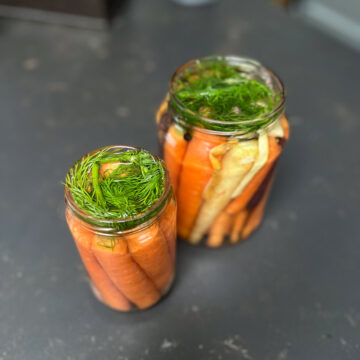
Quick pickled carrots
Equipment
- 2 jars pint jars
- pot
- knife
Ingredients
- 2⅓ lb carrots
- 3-4 cloves garlic
- 2 teaspoons pickling salt kosher salt
- 10 small dill sprigs fresh or 1 teaspoon seeds
- 4 small horseradish strips fresh root
- 3 cups water spring or filtered *
Instructions
- Gather the ingredients.
- Wash the carrots. Slice off the stem ends and tips, and peel the carrots.
- Mix the water with the salt until dissolved.
- Trim the carrots short enough to fit into a ½ pint jar leaving some little headspace above.
- Add peppercorns, garlic bay leaves to the jars in between the carrots.
- Separately, mix the water with salt until the salt has dissolved.
- Pour water over the carrots, leaving some space since they may leak during fermentation. Add fresh dill on top, then partially cover with lids, as pickles require oxygen for the pickling process and gases need to escape.
- Once or twice a day, whenever you pass by or see the jars, remember to properly seal or tighten the lids and tilt the jars to mix the brine. After completing this step, remember to loosen the lids again.
- After 4-5 days, you can taste them, and if they have reached the desired level of sourness, tighten the lids and refrigerate them.


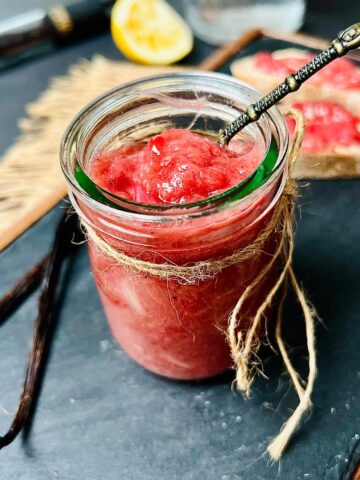
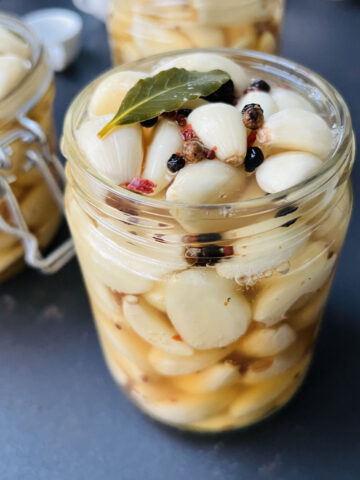
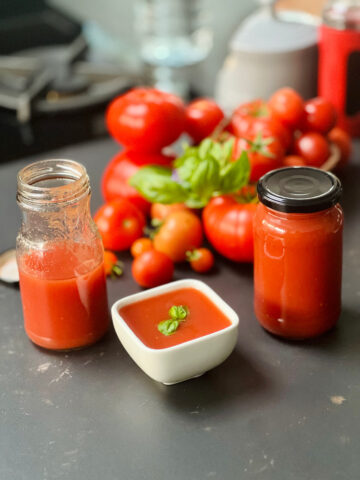
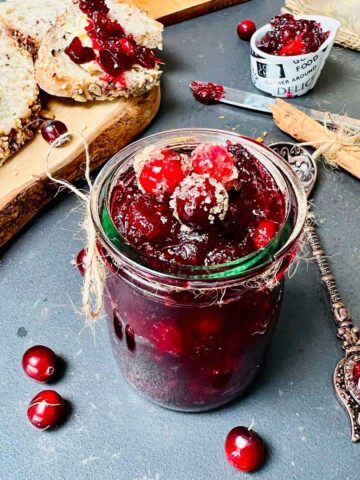
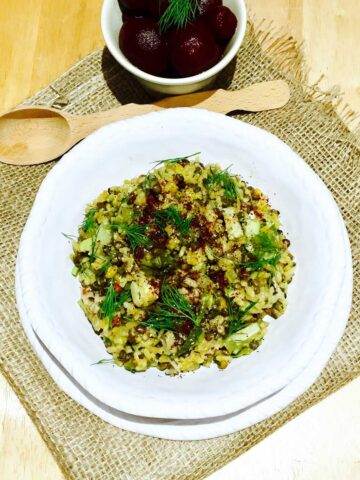
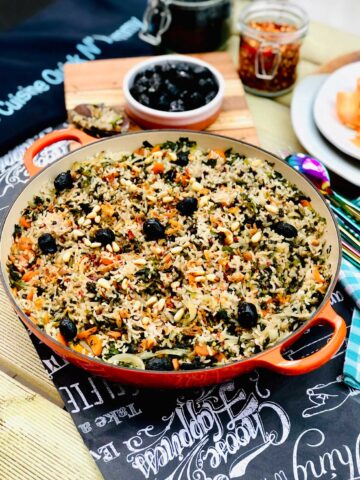
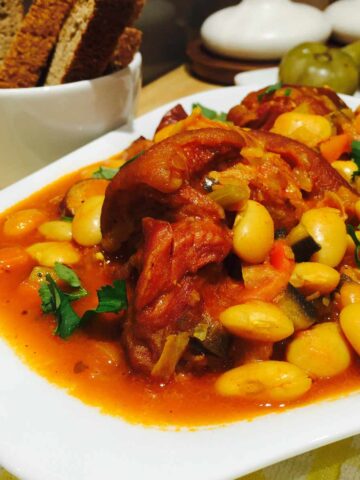
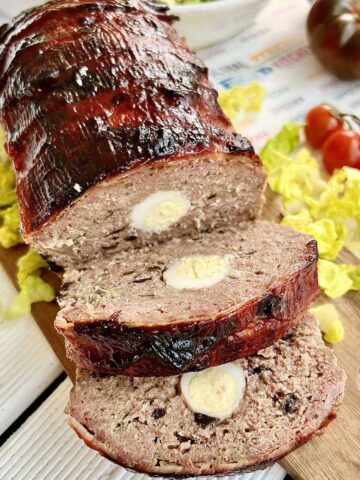

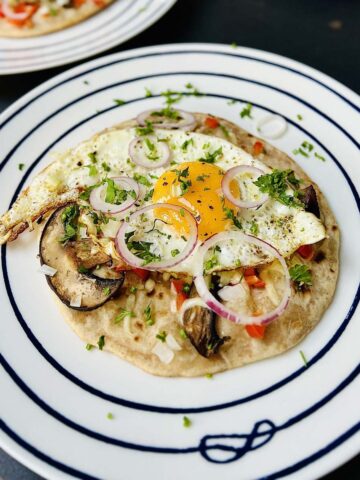
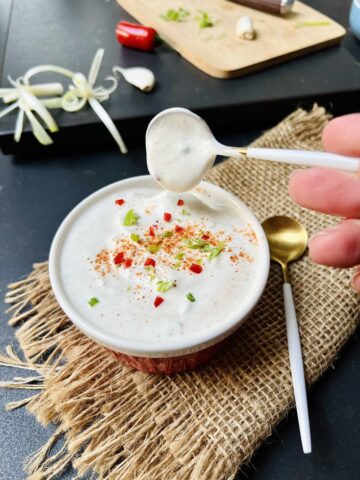
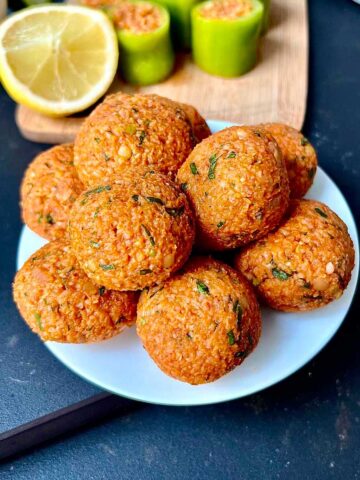
Jennifer says
I love to visit your site because I always learn something new. I have never pickled anything in my life. These carrots were my first attempt, and they came out fantastic! Thanks so much for your recipes!
Ramona says
Thank you so much for your kindness dear Jennifer! You are soo kind and I do hope you will be making more of my recipes.
Jenny says
With just simple ingredients, you gave us delicious pickled carrots. Thank you so much, they are excellent!
Ramona says
Thank you so much dear Jenny!
andrea says
I've never pickled anything but this recipe looks easy enough I am going to try it. Great instructions!
Veronika says
I love pickled veggies, sauerkraut is my favorite, but I never thought to pickle carrots! These were so good!
Ramona says
Time for making some pickled cucumbers then. I am sure you will enjoy them.
Elaine says
I can't believe how easy this recipe was and it came out perfectly. Thanks for the recipe.
Ramona says
Thank you Elaine.
Tammy says
I love pickled/fermented foods. They're so good for your gut too! Love this vinegar free recipe...so easy and so delicious I'm sure!
Ramona says
Hey Tammy, thank you so much for flagging this up to me - I am not quite sure what has happened there but I have now updated the post - I hope this will help. Please let me know how you liked this dish. Thanks again
Ramona xx
Jacqueline Debono says
I always end up buying more carrots than I use. This is the best way to use them up! I just love these pickled carrots!
Kathryn says
These carrots were so easy and make the best snack!! Thanks for sharing the recipe. Making another batch soon.
Sandhya Ramakrishnan says
Pickling is such a great technique to prevent food wastage and it enables me to use what we grow throughout the year. Carrots are one of my favorites and thanks for the timely reminder to sow extra to pickle some later.
Bernice says
Isn't it amazing how many cultures use fermentation to make pickles? I've only ever made sauerkraut and fermented dill pickles but now you've inspired me to try fermenting carrots too.
Yu says
I love this simple, easy vegan recipe. I followed your recipe and made them earlier, and I can't wait to taste it once the pickling time is over! Thanks for sharing!